Cheng Lei tells of why she loves Australia and why we must ‘preserve it, protect it, better it’
We bash ourselves and we feel helpless that our ‘lucky country’ standard of living is slipping. But there’s a lot to love about Australia, writes Cheng Lei.
Opinion
Don't miss out on the headlines from Opinion. Followed categories will be added to My News.
Plop – my ‘ball’ netted a goal.
Yes! I pumped my fist.
The pint-sized Lauren Jackson wannabe.
I was aiming a rolled-up pair of socks at a milk powder bag against the wall of the cell.
‘Thwack’. My cellmate had a go; her shot hit the bag which fell sideways.
It was dangerous fun and short-lived – making ‘toys’ was against the rules and the five cameras were always watching.
***
Nothing makes you miss Australia more than Chinese detention.
Space, sun, nature, smiling strangers and against the backdrop of all the above – sport.
All of it non-existent or banned in the cell.
A year after release, a clear and cool night at Gardner’s Reserve in Melbourne’s east.
My first soccer game. “Go Lei!” I heard from teammates as I ran my heart out. Our team is called the Newbies, and like many other master’s soccer groupings, it’s as eclectic as Australia itself. All ages, shapes, skill levels and ethnicity.
No better antidote to my former sunless confined life.
When I joined I was nervous – what if I suck and let the team down?
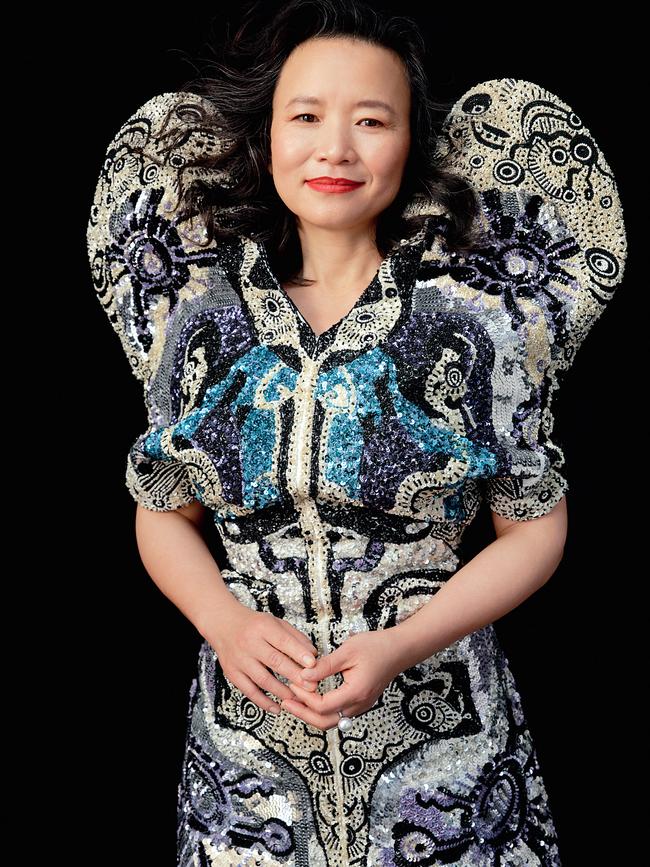
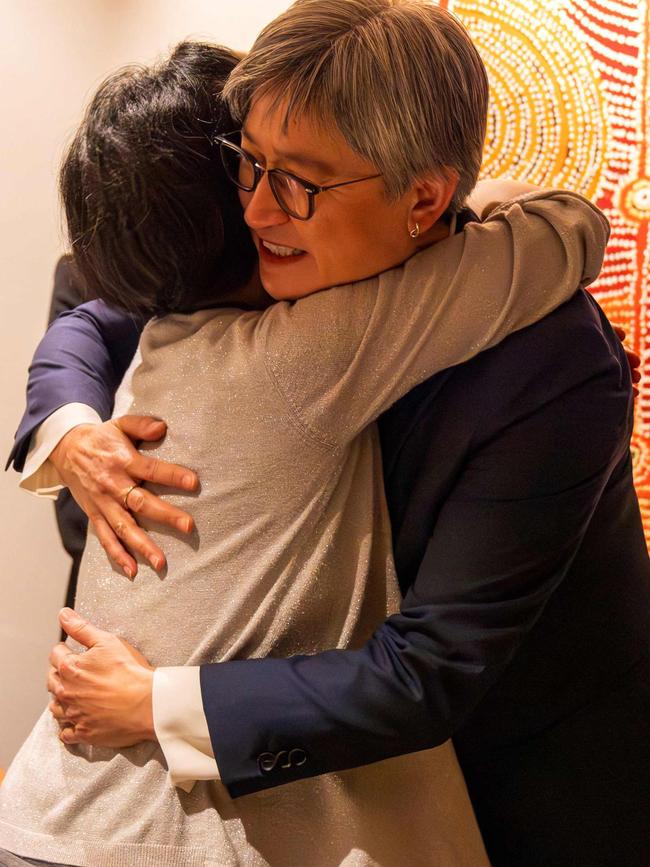
I needn’t have worried; as long as you ‘have a go’ you will be helped, supported and cheered.
Our ‘chief’ Rhiannon is also a firebrand player who cracks us up even as we are puffing on the pitch.
Our other ‘boss’ Anastasia is cool and collected and works the post-game bar so we get some boozin’ after a bruisin’.
My kids also play soccer, so I’ve been to sports grounds all over Melbourne. Whatever the weather, we share sport and its life lessons – play fairly, lose gracefully, work hard, keep going.
To help mum with depression, I’ve taken her to try tennis at the church club. She’s gone from “I can’t play tennis” to gamely having a hit. It costs hardly anything to play and the eldest player she’s met is 95.
Those who wonder how Australia punches above its weight in sporting achievements would get their answer by feeling the grassroots vibes at any community sports centre.
Compare it to countries that pluck the right shaped athletes and plonk them into training centres where the coach is god and Olympic gold is the holy grail.
There, athletes are tools of the regime and spat out once medal juices extracted. Sports help grease the propaganda machine.
In Australia sport is everywhere – accessible, affordable, and inclusive. With each exhilarating sprint, each inspired rally, my family (aged 13 to 76) feel the post-trauma scarring fade.
***
Aussie humour was part of my detention survival kit.
“As a con, now I’m really qualified to be an Australian!” I joked to my cellmates.
Stiff upper lip, twitching from amusement; that’s our version of stoic. We stare down adversity, belittle fear, turn misery into mirth.
When I made up a skit on dictators whingeing about cabbage stew in detention, it made the hunger easier to bear.
“Why did the chicken cross the road?”
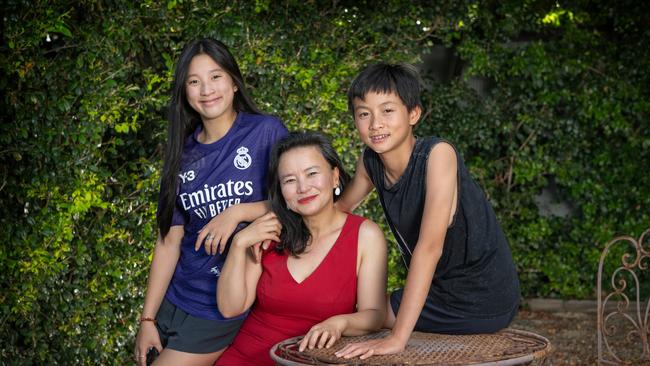
“’Cos the officer told him to.”
I knew if I told dumb jokes at the embassy visit, my family and friends would know I was the same old Lei.
Our national pastime of mickey-taking is as egalitarian as our society.
We skewer sacred cows and pull down the pants of the pompous.
Equal opportunity ribbing applies to our mates, pollies, anything proper – and most of all, ourselves.
***
July 2023 embassy visit in the Beijing MSS detention centre.
Typical Chinese official visit room, with chunky sofas and a floral rug.
I am surrounded by officers on the Chinese side.
None of them smile.
I had been blindfolded, masked and strapped into a wheelchair to be pushed into the room.
In a whole month, this was my only chance to sit on a chair, speak English and be called by my name. For 30 minutes.
Towards the end of our visit, an embassy official read out an Aussie newsfeed to me.
“A gold coast man has been surfing with his pet snake …” I couldn’t see Chris’s face which was masked but I imagined a smile spreading across it.
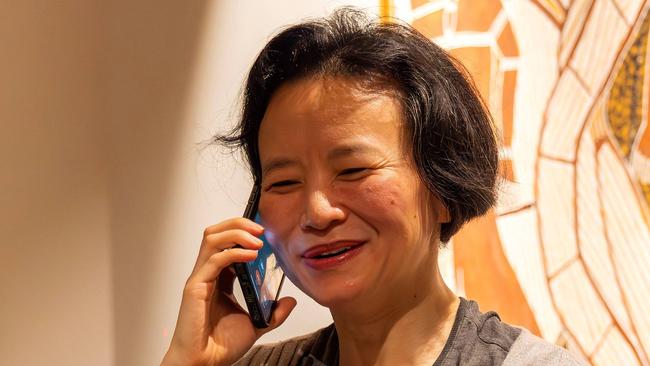
I was belly laughing. Surfing with your snake, of course. It’s so Australian, so ‘Why bloody not?’ Wait till I tell my cellmates this one!
Australia has quirkiness in spades and as Australians, we have no inner check against mischief.
It shows in our language, colourful and abbreviated, playful and non sequitur.
In detention I received a book of Australian poetry, ‘Junior football’ made me smile especially because it uses the words ‘tracky dacks’, ‘snags’, ’barbie’.
I said those daggy and endearing words to myself hundreds of times — longing for a day I’ll use them, the lexicon of laid-back weekends in Australian suburbia.
And now that IS my life.
***
1991, Brisbane.
“Dad! The fire brigade’s here!” I waved my arms at my dad, who was swatting smoke away in front of a metal drum.
“What?!” Sweat rolled down his face and streaked black.
“You’ve got to stop the smoking!” I told him and ran back to the fire truck to explain.
It was nearly to be a $2000 piece of smoked pork, but the fire brigade captain gave us a warning and left.
That was how much dad missed the taste of home, Hunanese smoked pork that every household made for Chinese New Year feasts.
Growing up in Australia in the ’80s, Asian food meant Cantonese and Vietnamese: if you needed soy sauce you had go to the Asian supermarket and Pearl River Bridge was the only brand available.
These days no matter which region you’re from, there’ll be groceries and eateries to cater to your cravings. For dad’s Hunantastes, we don’t have to smoke our own piggies at the risk of burning the house down.
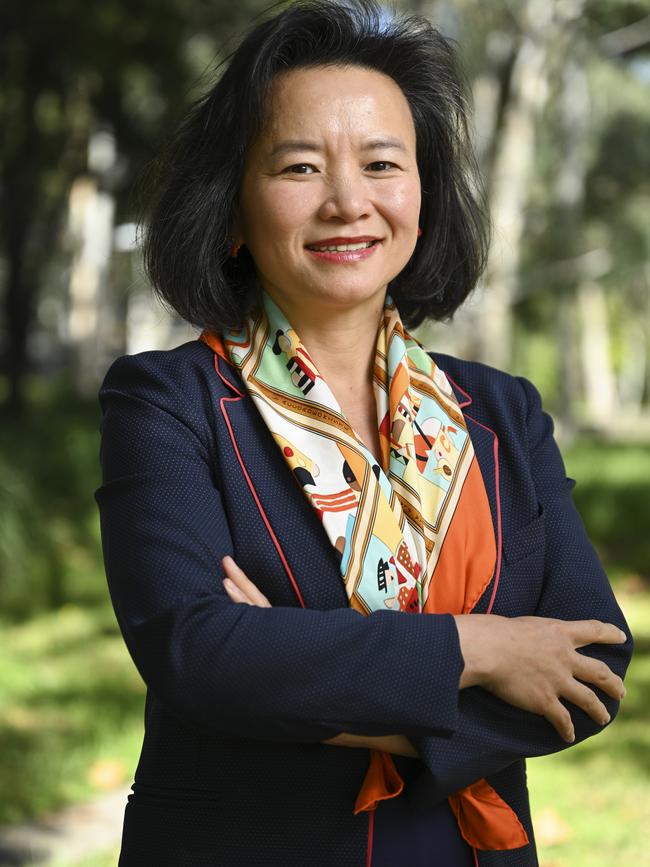
Our multicultural palates are broadening all the time.
I am still working through new exotic vegetable finds at my favourite food market – who knew about the apple cucumber? Orthe sinqua, a spiky cousin to the podgy luffa?
Eating and drinking well may be our religion, but wankiness is allowed only up to a point.
Our priests and priestesses of cookery take food very seriously, but not themselves.
When I arrived in Australia in 1985, there had been only one Chinese speaker in my primary school, a Cambodian girl.
I cried from missing my friends back in China. Dad said that it was only natural to feel left out at first, and that it would get better once I learnt English.
When our car broke down and we were helped by strangers, Dad said “Australians are so nice, they are trusting and open because they haven’t been constantly lied to and cheated like the Chinese.”
When there were occasional acts of racism, Dad told me to take it lightly – “We’re new, we need to prove ourselves and get people to know us. There’s good and bad people anywhere. In any case, look at horrible things Chinese do to the Chinese!”
In Bill Bryson’s book Down Under, he describes watching an interview with a new Hungarian immigrant to Australia, who goes to the local cop shop to register. When the big officer gets up from his seat to walk around the desk, the immigrant gets a fright because he is so used to violence inflicted by authority. Instead, the cop extends his huge hand, pats the immigrant on the back and says “Welcome, son!”
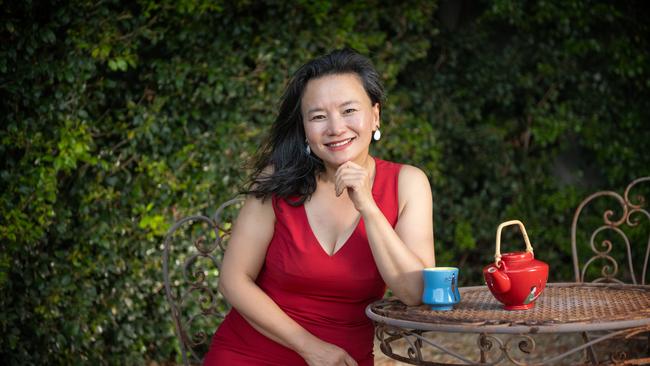
I cried out loud at this part in detention. Anyone who has been treated badly by ‘their own people’ and has left the ‘homeland’ would understand. We become inured to cruelty that
we crumble at unexpected kindness.
In detention I felt so lucky to be Australian I was embarrassed. I was visited by caring consular officers, who brought not only letters from family, but news of public sympathy. My peers in media wrote petitions and questioned government leaders whenever there was opportunity. In contrast, not only did my Chinese cellmates have no visits and no one to advocate for them, they had to worry about the effect their incarceration would have on their kids’ studies and careers.
Chinese detention was an odd place to do marketing for brand Australia, but if anything could brighten up a dungeon, it had to be the thought of jewel seas and sugar sand, fresh eucalyptus bush smells and the dazzling flash of rainbow lorikeets.
I described it all to my cellmates and made up a fantasy Australian tour itinerary for them, with a Magic Men show of course, after our reunion at the 2032 Brisbane Olympic Games.
This could be a new angle for immersive marketing. Talk about captive targets. Tourism Australia – you’re welcome.
***
When we first came to Australia, our best family friends were from Taiwan and Malaysia. Dad and Mrs Lin compared notes on what the mainland and the Taiwan government said about each other in propaganda; they were similarly bizarre. We found we had so much in common, especially shared relief that we were in a country where nobody needs to throw banned books out the window when censors come, to have diaries confiscated in midnight raids or to be shamed of one’s own family.
The appeal of coming to Australia is a fresh start, to create a new life away from tyranny, violence and injustice.
Now we are horrified to see conflict abroad lead to imported hate, vendettas against fellow Australians and violence at places of worship.
None of it is part of the Australia I love.
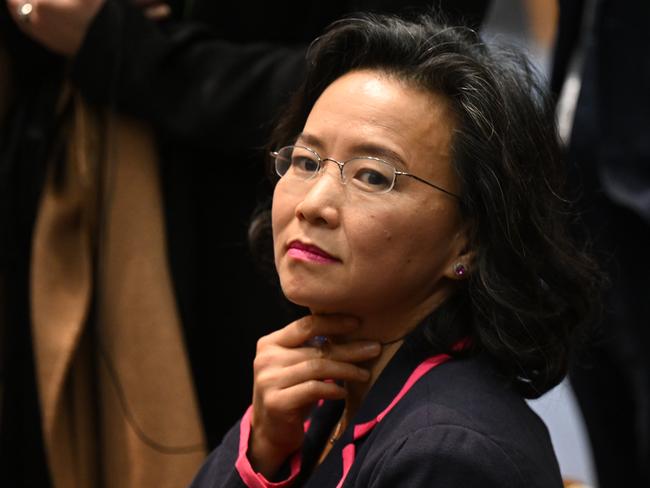
It gives dictatorships a convincing case against personal freedom.
It makes people think twice about making Australia their home.
I hate to think that if there was military conflict between the Chinese mainland and Taiwan, my kids will be scared about being attacked or ostracised, that mainlanders’ homes and organisations will be targeted. That overseas Chinese will need to choose a side.
It speaks to our compassion and multicultural roots that we care deeply about the suffering from war in the middle east.
But if we resort to the very violence we are protesting against, have we not become our enemies?
If we create fear and destruction, we don’t deserve the safety and peace of Australia.
If we don’t speak up against actions and words of hate, one day we’ll ourselves be the victims, unsupported, undefended.
In those dark years it was Australia’s caring society that I missed the most, even more than the beach and the sunshine.
It is why people spoke up for me – an Aussie woman locked up in China away from her kids.
It is all very well, one might say, to look at Australia through the rose tinted glasses of the released prisoner, romanticising won’t solve problems we face.
These days our history is conflicted. Future is uncertain. Identity is confused.
We bash ourselves about our low productivity, social division, foreign policy ambiguity, weak leadership, and polarised media.
We feel helpless that our ‘lucky country’ standard of living is slipping, we’re horrified at high crime rates in the regions, we’re unsure about where we sit on the shifting political spectrum.
But for some of us who have experienced the counterpoint to this open, fair and kind country, each day we see the ways in which she outshines others and we feel inordinately
grateful to be its citizens. It is also our proud duty to preserve it, protect it, better it.
Cheng Lei is a presenter on Sky News. Between 2020-23 she was held in detention by authorities in China.





